Cameron, migration and the Germans
- Published
- comments
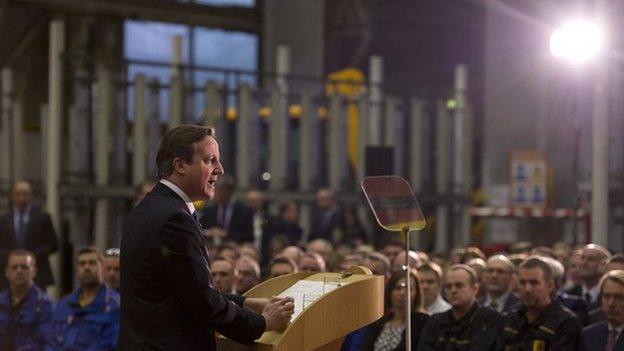
Prime Minister David Cameron has said he hoped to get net migration below 100,000 before the election in 2015
David Cameron was speaking to different audiences today. Of course there was the British electorate and his own restive backbenchers but he was also addressing the Europeans and in particular the Germans.
Berlin had been genuinely shocked when David Cameron and senior Conservatives had spoken of imposing "emergency brakes", "caps" or quotas on the numbers of EU migrants moving to Britain.
Such restrictions would have completely undermined the principle of freedom of movement in the German view. Angela Merkel feared that British plans contained risks for the European project and she was determined to stop them.
Two weeks ago the former Prime Minister Sir John Major came to Berlin to make a speech about Britain and Europe.
In it he said: "I do recognise - reluctantly - that our small island simply cannot absorb the present and projected numbers at the current speed: it is not physically or politically possible without huge public disquiet."
Afterwards during questions, Sir John underlined his point by saying that at the very heart of the problem was "numbers, numbers, numbers".
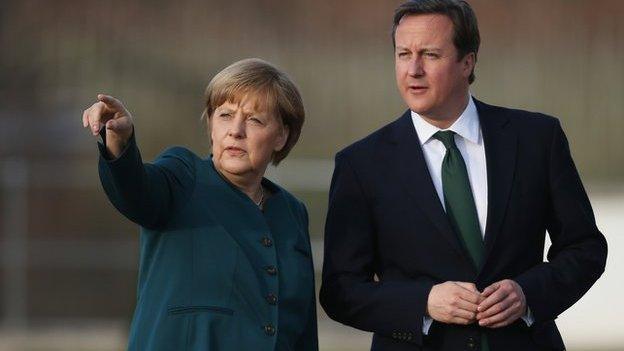
Angela Merkel has reportedly warned David Cameron she would rather see the UK leave the EU than compromise over the principle of free movement
Listening to him was one of Angela Merkel's closest aides. Over dinner he explained the German red line - they would reject any plan that was seen to weaken freedom of movement. The Chancellery wanted that message passed to Downing Street.
So began a search for a policy which might dissuade some EU migrants from coming to Britain without impinging on their right to move anywhere in the EU.
Downing Street believed the key lay in reducing incentives to move to the UK. The answer, in their view, lay in restricting benefits for those who had recently begun working in the UK.
For the first four years they would be unable to receive tax credits or child benefits, or be considered for social housing.
Without such benefits, it was argued, some migrants might be deterred from coming to the UK because the money they earned would not be much greater than back in their home country.
The German chancellor was briefed in detail by David Cameron yesterday. Her response is said to have been "warm".
The Cameron plan involved "rule changes" certainly, but it did not challenge the core principles of the EU as contained in the treaties.
In the writing of the plan there had been wide consultation between London and Berlin. One official said you could "see the German influence" on the speech.
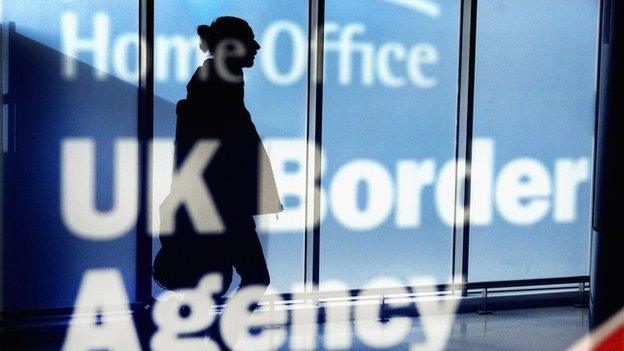
EU citizens are free to come to the UK and compete for jobs without being subject to any immigration controls
The German Chancellery later on Friday put out a statement pointing out that David Cameron "has acknowledged in his speech" the importance of free movement as a central pillar of the European Union and the Common Market. The German government "is prepared to work closely with Great Britain....to address all the problems".
The British saw this as a positive reaction.
Some allies of Angela Merkel, however, were expressing concern at EU migrants being denied benefits received by others for a period of four years.
One German MP said he felt it was discriminatory and there were bound to be legal challenges. Downing Street, too, expects legal problems, which is why today David Cameron said "these changes, taken together, will require some treaty changes".
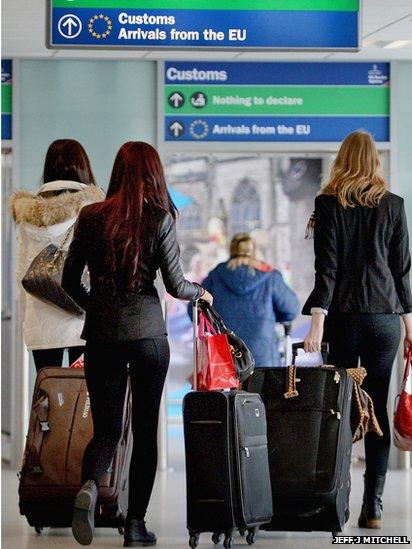
A UK referendum on the EU is expected in 2017
The idea of treaty change divides the German establishment.
One MP said to me today: "Re-negotiating the treaties is an illusion." But others like German Finance Minister Wolfgang Schauble believe treaty change will be necessary to enforce discipline within the eurozone. In the end there are degrees of treaty change.
It should also be pointed out that many German MPs share some of the British concerns. This year Germany has taken in nearly 400,000 migrants and refugees, more than any other EU country.
Already the mayors of 24 towns have expressed concern at the pressures on local resources in dealing with migrants. So some German MPs agree that there needs to be some flexibility in interpreting freedom of movement.
There was today a frequently asked question among politicians in Berlin. Is this the centre-piece of any future British re-negotiation?
If Germany backs a compromise, would that be enough for David Cameron to say to the British people that he had won a major concession or would there be a long list of further requests? Almost certainly the list of priorities will be refined.
The prime minister said his demands were not "outlandish" or "unreasonable", "...and they deserve to be heard".
Nobody doubts the negotiations will be difficult but Berlin looks prepared to hear David Cameron out, without any firm commitments.
- Published26 November 2014
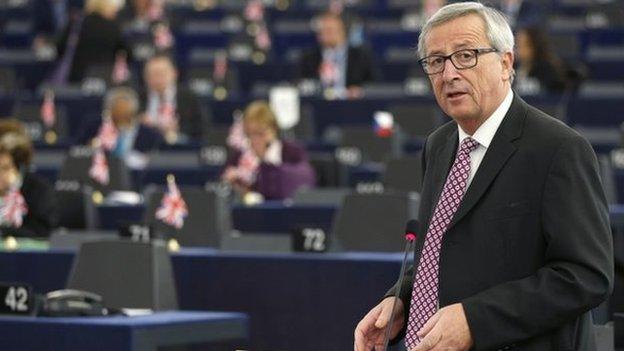
- Published28 November 2014
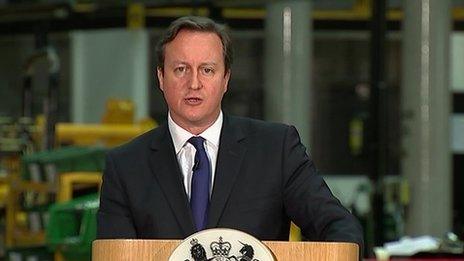
- Published26 November 2014